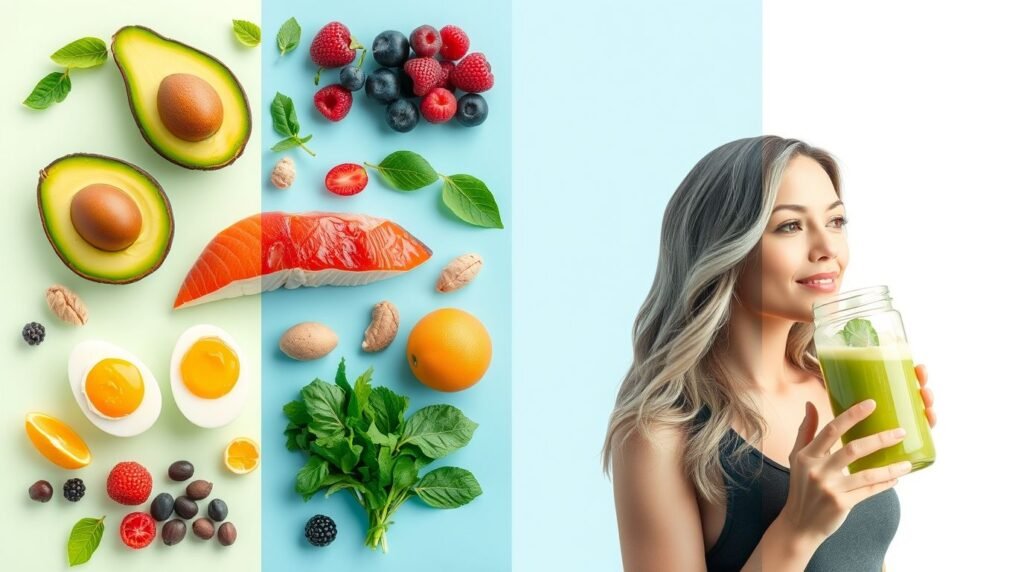
Introduction to Skin and Hair Health
The importance of nutrition for maintaining healthy skin and hair cannot be overstated. The vitality and appearance of our skin and hair are significantly influenced by the dietary choices we make. Essential nutrients, vitamins, and minerals have a direct impact on these vital components of our body. Understanding the structure of skin and hair, as well as their nutritional requirements, is essential for anyone looking to improve their overall health and aesthetic appeal.
The skin, composed of multiple layers, serves as the body’s first line of defense against environmental elements. Its health is influenced by the intake of hydrating substances, antioxidants, and fatty acids. For instance, vitamins such as A, C, and E play a vital role in skin health by promoting cellular repair, enhancing moisture retention, and protecting against oxidative stress. Additionally, minerals like zinc and selenium contribute to skin elasticity and fight inflammation, which can reduce the signs of aging.
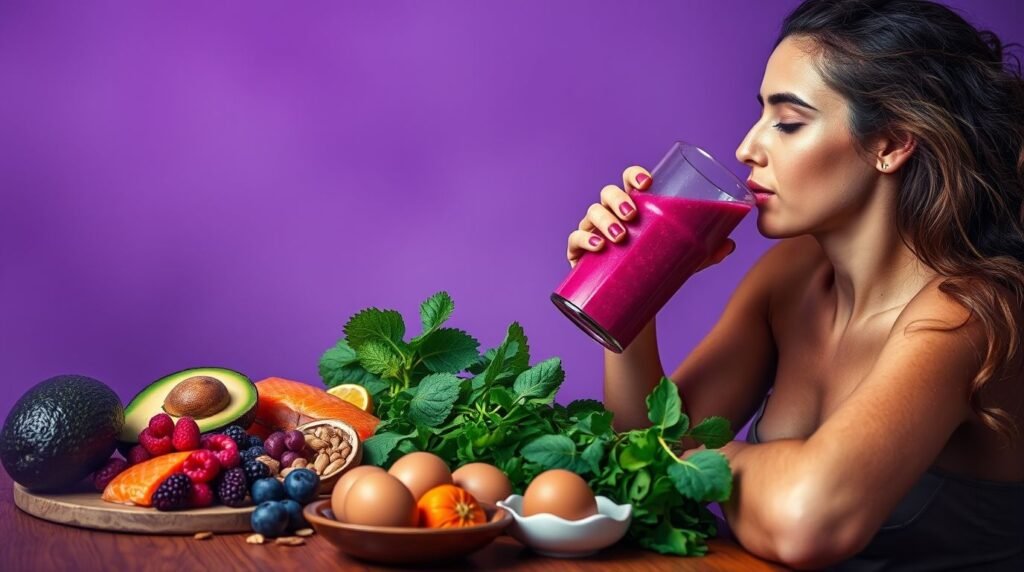
In essence, skin and hair health is intricately linked to nutrition. By fostering a diet rich in essential nutrients, individuals can enhance the vitality and appearance of their skin and hair. A well-balanced diet not only fulfills the body’s biological needs but also supports the external expression of health and beauty. Therefore, understanding the role of nutrition in skin and hair care is foundational for those seeking to make positive changes in their appearance and overall well-being.
Essential Vitamins for Radiant Skin
The health and appearance of our skin are profoundly influenced by the nutrients we consume, particularly essential vitamins. Among the most essential for skin health are Vitamins A, C, E, and K. Each of these vitamins plays a unique role in maintaining and promoting radiant skin, making them critical components of a balanced diet.
Vitamin A is renowned for its contribution to skin integrity and function. It promotes the production of new skin cells and effectively combats issues like acne and dryness. Sources rich in Vitamin A include carrots, sweet potatoes, and leafy greens, which help in maintaining skin elasticity and overall texture.
Vitamin C is another vital nutrient that acts as a potent antioxidant, protecting the skin from damage caused by free radicals and UV exposure. Furthermore, it is essential for collagen synthesis, a protein that aids in keeping the skin firm and youthful. To boost your Vitamin C intake, consider incorporating citrus fruits, strawberries, and bell peppers into your diet.

Vitamin E is often celebrated for its moisturizing properties. It aids in sustaining skin hydration, preventing dryness, and reducing the appearance of fine lines and wrinkles. Foods such as nuts, seeds, and avocados are excellent sources of Vitamin E, contributing to a smooth and youthful complexion.
Finally, Vitamin K is significant for skin healing and plays a crucial role in reducing dark circles and promoting overall skin health. Green leafy vegetables like kale, spinach, and Brussels sprouts supply this vitamin, enhancing the skin’s resilience.
In conclusion, maintaining a diet rich in these essential vitamins can significantly contribute to achieving and sustaining radiant skin. By focusing on nutrient-dense foods that provide Vitamins A, C, E, and K, individuals can support their skin’s health while combating common concerns effectively.
Minerals that Enhance Skin and Hair Quality
Maintaining healthy skin and hair involves a balanced diet rich in essential minerals. Notably, minerals such as zinc, selenium, and iron play critical roles in promoting skin health and hair growth. Understanding their functions and incorporating food sources rich in these nutrients is pivotal for achieving optimal results.
Zinc is crucial for tissue repair and regeneration. It assists in the maintenance of skin’s structure and integrity, while also helping to reduce inflammation and the risk of acne. Additionally, zinc plays a vital role in hair follicle development, influencing hair growth cycles. Foods rich in zinc include shellfish, nuts, seeds, and whole grains. To enhance zinc absorption, complementary foods like legumes can be consumed alongside these sources.

Selenium is another important mineral that acts as a powerful antioxidant, protecting the skin from free radical damage. This mineral aids in the prevention of skin aging by maintaining elasticity and moisture levels. Moreover, selenium is vital for hair health, as it supports the body’s ability to produce new hair. Incorporating selenium-rich foods such as Brazil nuts, fish, eggs, and mushrooms into your diet can help ensure ample intake. It is beneficial to remember that cooking methods can affect selenium levels, so steaming or sautéing may help retain its nutritional value compared to boiling.
Iron is essential for oxygen transportation throughout the body, which is critical for healthy hair follicles. Iron deficiency can lead to hair thinning and loss. Sources of iron include red meat, leafy greens, lentils, and fortified cereals. Pairing iron-rich foods with vitamin C sources, such as citrus fruits, can enhance iron absorption, making it easier for the body to utilize this vital mineral.
Incorporating these vital minerals into your daily diet can significantly enhance skin and hair quality. A balanced approach, focusing on whole foods, will promote overall health and nourishment.
Importance of Omega Fatty Acids
Omega fatty acids, particularly omega-3 and omega-6, play a crucial role in maintaining the health of both skin and hair. These essential fatty acids are integral in ensuring that skin remains moist, flexible, and resilient, while also fostering an environment conducive to healthy hair growth. Omega-3 fatty acids, in particular, are celebrated for their anti-inflammatory properties, which can help alleviate skin conditions such as eczema and psoriasis, thus promoting an overall healthier complexion.
Omega-6 fatty acids complement omega-3s by contributing to the skin’s barrier function, helping to lock in moisture and prevent dehydration. This dual action helps in maintaining supple and youthful skin, while simultaneously enhancing the strength and appearance of hair. A deficiency in these vital nutrients can lead to issues such as dry skin, hair loss, and other dermatological problems, making their inclusion in the diet paramount for optimal health.
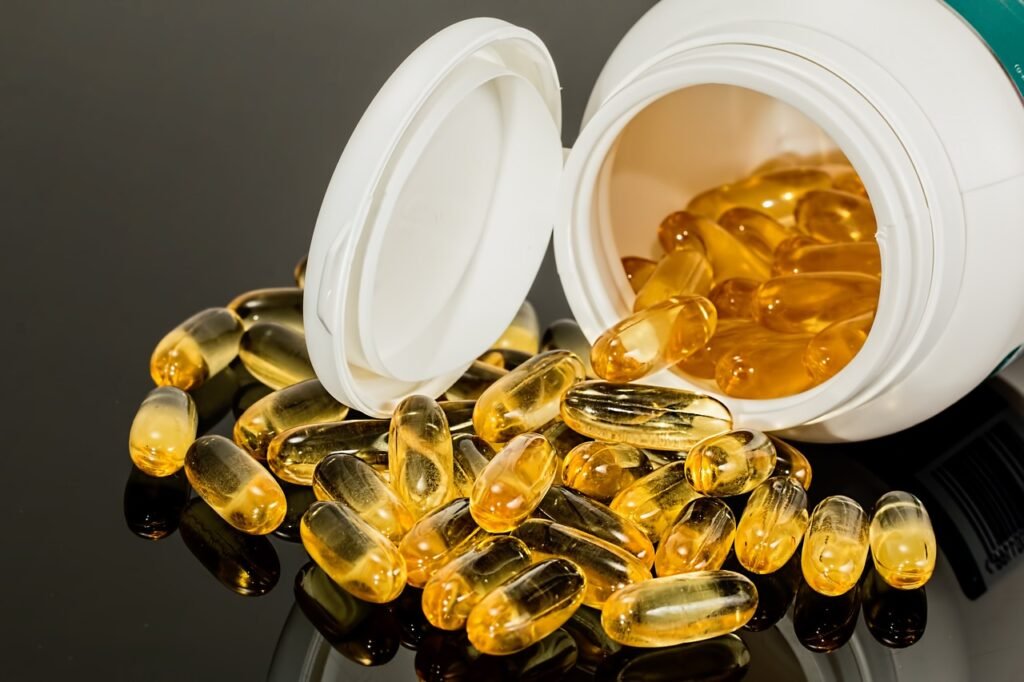
Incorporating omega fatty acids into one’s diet can be both simple and delicious. Sources rich in omega-3s include fatty fish such as salmon, mackerel, and sardines. Vegetarian options can be found in chia seeds, flaxseeds, and walnuts, which are excellent choices for those following a plant-based diet. Meanwhile, omega-6 fatty acids are abundantly available in vegetable oils, nuts, and seeds, making them easily accessible in various culinary applications.
To effectively boost the intake of these essential fatty acids, consider incorporating a variety of these sources into daily meals. For instance, adding a handful of walnuts to your breakfast cereal or opting for a fish-based dish several times a week can significantly increase omega fatty acid levels in the body. By making these simple dietary adjustments, one can enjoy the multifaceted benefits of omega-3 and omega-6 fatty acids for improved skin and hair health.
Hydration: The Key to Healthy Skin and Hair
Hydration plays a pivotal role in maintaining the health and vitality of both skin and hair. Adequate water intake directly correlates with skin elasticity and hair strength, which are essential components of a polished appearance. When the body is well-hydrated, the skin retains moisture more effectively, leading to a plumper and more resilient complexion. Conversely, dehydration can result in dry, flaky skin that loses its youthful glow and strength, with hair often becoming brittle and prone to damage.

To achieve optimal skin and hair hydration, it is recommended to consume an appropriate amount of water daily. The commonly suggested guideline is eight 8-ounce glasses, though individual needs may vary based on activity levels, climate, and personal health. In addition to plain water, incorporating water-rich foods such as fruits and vegetables into one’s diet can significantly boost moisture levels. Foods like cucumbers, watermelon, oranges, and strawberries are not only refreshing but also contribute to overall hydration, supporting skin cell turnover and hair health.
Moreover, staying hydrated does not merely enhance the outer appearance; it also reflects on internal wellbeing. Proper hydration aids in the functioning of various bodily systems, including circulation and digestion. These systems work together to deliver essential nutrients to skin and hair follicles, fostering growth and maintenance. To facilitate better hydration habits, it is beneficial to keep a water bottle on hand, set reminders throughout the day, and consume herbal teas which also provide hydration without added sugars or calories.
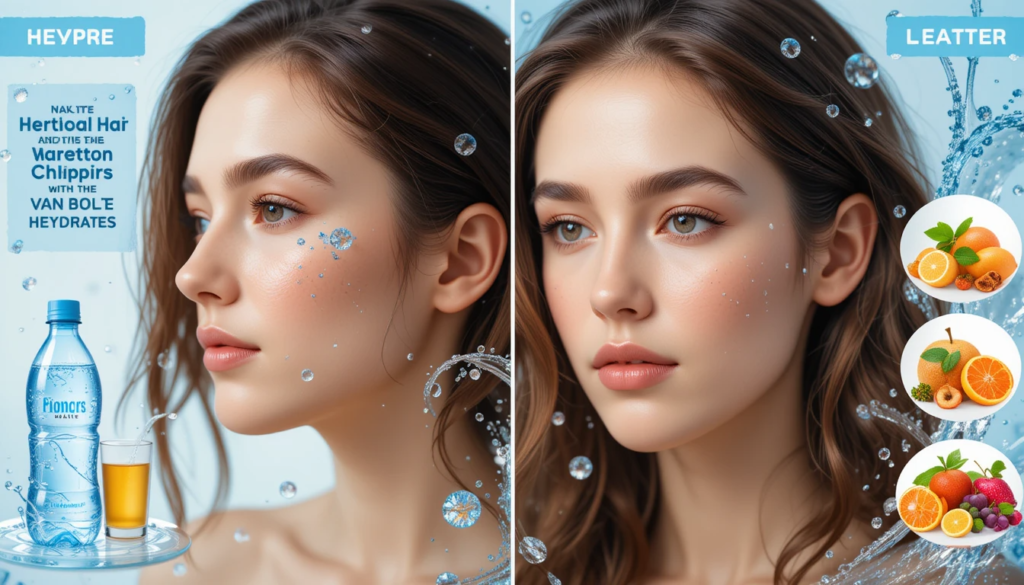
In conclusion, prioritizing hydration is vital for achieving and maintaining healthy skin and hair. By drinking an adequate amount of water and including hydrating foods in one’s diet, individuals can enhance their overall health and appearance effectively.
Antioxidant-Rich Foods for Skin Protection
Antioxidants play a crucial role in protecting the skin from oxidative stress caused by free radicals. These reactive molecules can damage skin cells, leading to premature aging, wrinkles, and a loss of elasticity. Including antioxidant-rich foods in your diet can significantly enhance skin health. Foods high in antioxidants are abundant and varied, making it easy to incorporate these beneficial items into meals and snacks.
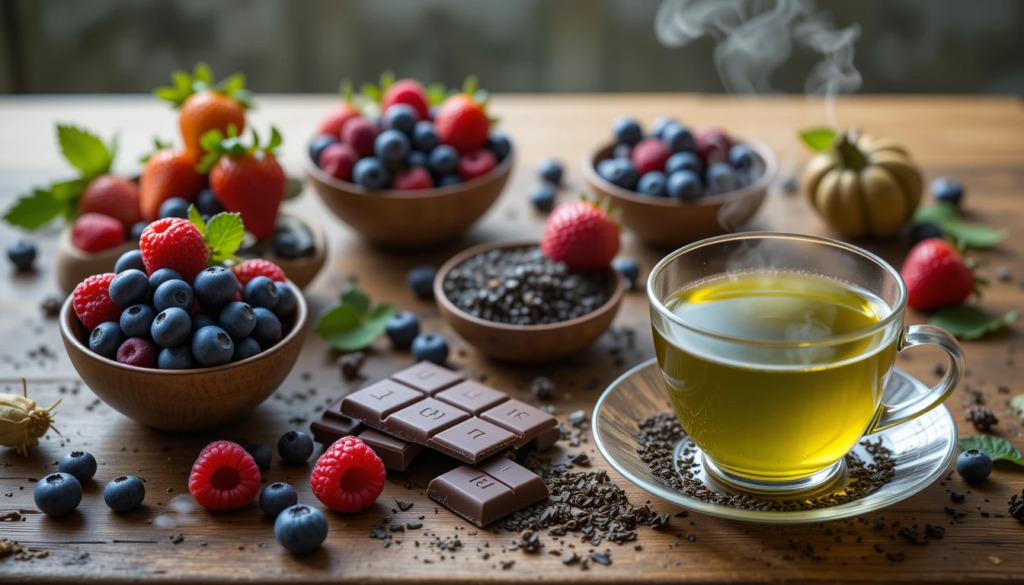
Berries, such as blueberries, strawberries, and raspberries, are exceptionally rich in antioxidants, particularly vitamin C and anthocyanins. These compounds help to protect the skin from UV radiation and support collagen production, which is essential for maintaining skin’s firmness and smoothness. Consuming a variety of berries can not only satisfy sweet cravings but also provide a powerful boost to skin health.
Dark chocolate, specifically varieties that contain at least 70% cocoa, is another excellent source of antioxidants. It is rich in flavonoids, which aid in improving blood circulation and skin hydration. Dark chocolate can also help to reduce redness and improve skin texture over time. When consumed in moderation, it serves as a delicious way to enhance your skincare regimen.
Another beneficial beverage is green tea, which is packed with polyphenols that promote skin protection. The catechins found in green tea help to combat inflammation, reduce the risk of sun damage, and protect against skin cancers. Drinking green tea regularly can support overall skin vitality and promote a glowing complexion.

Incorporating foods rich in antioxidants—such as berries, dark chocolate, and green tea—into your daily diet offers significant benefits for skin health. These foods not only fight the effects of free radicals, but they also contribute to a more youthful and radiant appearance, making them indispensable components of a holistic approach to skincare.
The Role of Protein in Hair Strength
Protein plays a crucial role in maintaining strong and healthy hair. The hair structure is primarily made up of a protein called keratin, which gives it strength and resilience. A sufficient intake of protein is essential for the growth and repair of hair follicles, which directly affects hair health and growth rates. Without adequate protein, hair can become weak, brittle, and prone to breakage.

There are several excellent sources of protein that one can incorporate into their diet to support hair health. Lean meats, such as chicken, turkey, and fish, are rich in high-quality proteins that can enhance hair strength. Additionally, dairy products like yogurt and cheese provide not only protein but also important vitamins and minerals that contribute to hair nourishment. For individuals who prefer plant-based alternatives, legumes, including lentils, chickpeas, and beans, serve as valuable protein sources, along with nuts and seeds which are also rich in omega fatty acids that promote healthy hair.

Moreover, the role of protein extends beyond mere structure. Adequate protein intake can influence hair growth rates and the overall health of the scalp. Proteins assist the body in producing hormones that stimulate hair follicles, promoting an environment conducive to hair resilience and growth. Therefore, balancing your diet to include ample protein is crucial, especially for those experiencing hair thinning or loss. While protein is important, it is also essential to strike a balance with other nutrients, as a holistic approach to nutrition will yield the best results for hair health. In conclusion, integrating a variety of protein sources into one’s diet can significantly enhance the strength and vitality of hair, contributing to overall improved hair health.
Impact of Sugars and Processed Foods on Skin and Hair
The consumption of excessive sugars and processed foods is increasingly recognized as a factor that can negatively impact skin and hair health. These substances can trigger a range of biochemical processes in the body that lead to visible deterioration in the condition of skin and hair. One primary mechanism by which sugars affect skin health is through a process called glycation. When sugar molecules bind to proteins in the skin, they can create advanced glycation end products (AGEs), which contribute to the breakdown of collagen and elastin. This degrades the skin’s structural integrity, resulting in a dull complexion and increased visibility of fine lines and wrinkles.

In addition to collagen damage, high sugar intake has been linked to chronic inflammation. This inflammatory response can manifest in various skin conditions, including acne, eczema, and psoriasis. Processed foods, which often contain refined sugars, unhealthy fats, and artificial additives, exacerbate these issues further by promoting hormonal imbalances. Elevated insulin levels, often caused by high sugar consumption, can trigger the production of excess oil in the skin, leading to blocked pores and the onset of acne flare-ups.
To mitigate these negative effects, individuals can benefit from reducing their intake of sugars and processed foods. Instead, focusing on a nutrient-rich diet emphasize whole foods—such as fruits, vegetables, whole grains, and lean proteins—can foster healthier skin and hair.

Foods rich in antioxidants, like berries and leafy greens, can combat free radical damage, while healthy fats from sources like avocados and nuts can nourish the skin and promote hair vitality. Making these dietary adjustments not only aids in the enhancement of one’s overall health but can also contribute significantly to improved skin and hair quality, leading to a more radiant appearance.
For Salmon Recipes Click here
Sample Meal Plans for Radiant Skin and Hair
To foster optimal skin and hair health, it is essential to incorporate a balanced selection of nutrients into daily meals. This section offers sample meal plans that serve not only to nourish but also delight, striking a balance between health and flavor. Each component highlights ingredients known for their skin and hair benefits while promoting overall well-being.
Breakfast: Begin the day with a smoothie bowl made from spinach, avocado, and banana, blended with almond milk. Top it with chia seeds, berries, and a drizzle of honey. Spinach and avocado are rich in vitamins A and E, which contribute to skin elasticity and hydration. The chia seeds offer omega-3 fatty acids, which are essential for maintaining hair health.
Lunch: Consider a quinoa salad featuring cherry tomatoes, cucumber, and grilled chicken, dressed with olive oil and lemon. Quinoa is a superb source of protein and contains essential amino acids that support keratin production in hair. The vegetables offer antioxidants, crucial for combatting oxidative stress on the skin.
Snacks: Healthy snacks can include a handful of walnuts or a cup of Greek yogurt with mixed fruit. Walnuts are particularly high in omega-3s, promoting scalp health, while Greek yogurt delivers much-needed protein and probiotics, which help to foster a balanced gut, further benefiting skin clarity.
Dinner: For dinner, prepare baked salmon served with a side of steamed broccoli and sweet potatoes. Salmon is packed with omega-3 fatty acids and vitamin D, both instrumental in maintaining healthy skin and hair. Broccoli provides necessary vitamins C and K, essential for collagen production and overall dermal health.
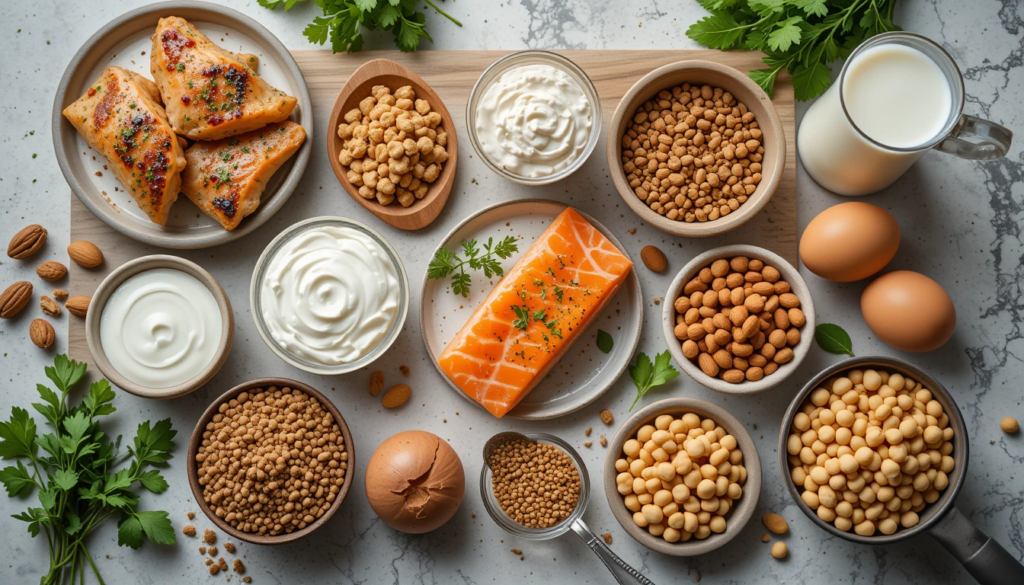
Engaging in a meal plan with these elements can significantly enhance skin and hair health, encouraging a radiant appearance from within. With delicious and easy-to-prepare options, nourishing your body becomes a gratifying daily ritual.
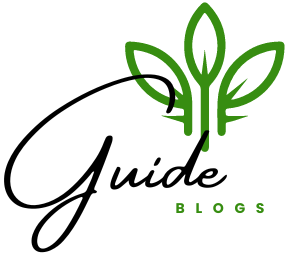
Beylikdüzü su kaçak tespiti Binamızdaki su kaçağını tespit etmek için kullandıkları teknoloji son derece gelişmişti. Sorunu kısa sürede çözdüler. Cengiz V. https://guard-xpress.com/author/kacak/
That sounds perfect. Great